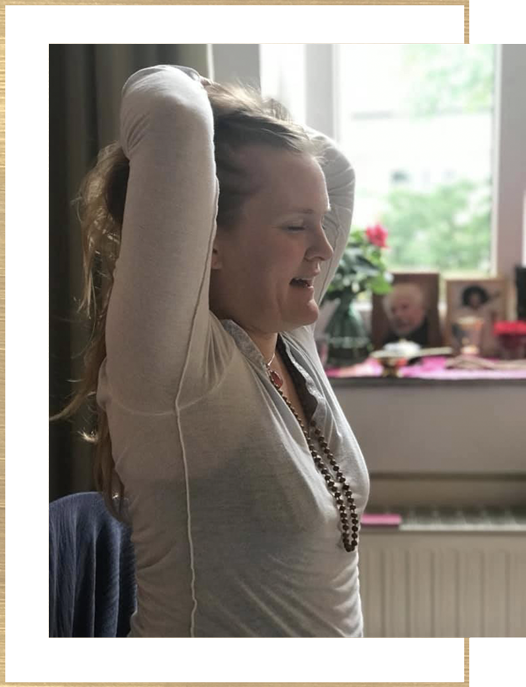The moment that makes or breaks emotional intimacy—and what most men still don’t understand.
She says it quietly. Maybe with tears in her eyes, or a tension in her chest that she hasn’t named yet.
“I don’t know what I’m feeling. I just know something’s there. I need to feel it through.”
This is not a test. It’s not drama. It’s not about you needing to fix anything.
It’s about whether or not she is safe to be fully herself with you.
This moment—when she opens her emotional world to you without clarity or answers—is the one that defines how safe she feels to be soft, real, and raw in your presence.
And it’s the moment that most men, even the well-meaning ones, get wrong.
What Usually Happens (and Why It Hurts So Much)
You want to do the right thing. You want to help. You feel uncomfortable with her uncertainty, and so you try to fix it, move it along, or figure it out.
And when she says, “Just be here,” or offers you cues about how to hold her, it feels like a setup.
You feel powerless.
You start thinking:
- “Why can’t she just tell me what she needs?”
- “I’m trying, and it’s still not enough.”
- “She’s mad at me again, and I don’t even know why.”
So you pull away. Or get frustrated. Or say something like:
“I’m doing my best here. You’re acting like I’m the enemy.”
And suddenly, her emotional truth becomes about you.
You might not even realize what just happened. But she does.
Because she’s no longer in her feeling. She’s managing yours.
And in that moment, she feels the subtle but familiar ache of being emotionally abandoned.
That might sound dramatic, but it’s not. For her, emotional abandonment can feel like a kind of psychic betrayal. It doesn’t take yelling or disappearing for her body to register, “I’m alone in this again.”
What She’s Really Asking For
Not advice.
Not solutions.
Not for you to magically understand what she can’t even name yet.
She’s asking:
“Can you be steady when I don’t have words yet? Can I trust you to hold me when I can’t hold myself?”
She wants to know that you can:
- Stay calm in the presence of her emotion
- Ask questions that help her feel, not perform
- Be with her in her body, not disappear into your head
- Not make her wrong for being affected, sensitive, tender, or unclear
She wants to know that your nervous system can stay grounded enough to help her come home to hers.
Because when she opens in this way—without form, without a script—she’s showing you the most raw, alive, human parts of herself. And she’s doing it not to manipulate you, but because somewhere in her body, she still hopes:
“Maybe this time, he’ll stay.”
How to Lead Emotionally (Even When You Don’t Know What to Do)
This is not about being a therapist. It’s about being present.
When she says she doesn’t know what she’s feeling, you don’t need to understand.
You need to stay.
And you need to ask questions that invite her into deeper contact with herself, like:
- “Where do you feel it in your body?”
- “If that feeling had a shape or a color, what would it be?”
- “Does it remind you of anything?”
- “Do you want me to just sit with you while it moves through?”
These aren’t strategies. They’re signals of safety.
They say: “You’re allowed to be exactly where you are. I’m not afraid of this. I’m here.”
And yes—it may feel awkward. You might feel silly at first asking these kinds of questions. But the point isn’t performance. It’s presence.
That is what leadership looks like in the emotional realm.
And leadership is what she’s longing for—not domination, not control, but a grounded, clear, compassionate energy that can hold her without needing her to shrink.
Why She Gets So Mad When You Get Frustrated
She’s not mad that you didn’t say the perfect thing.
She’s mad because she came to you open and soft—and you flinched.
She’s mad because you turned the moment into a reflection of your discomfort.
She’s mad because now she has to abandon her vulnerability to attend to your reaction.
And what that creates, over time, is not just disconnection.
It creates emotional distrust.
She starts to believe:
- “I can’t bring him my truth unless it’s easy and clear.”
- “If I’m messy, he pulls away.”
- “I have to hold both of us when I’m already full.”
She stops reaching out. She starts managing herself. Not because she’s moved on, but because she had to become emotionally self-protective.
You may still be in relationship, still sleep in the same bed, still co-parent, still talk about the day—but something sacred quietly dies inside a woman when her emotional honesty becomes a liability.
If You Keep Getting Frustrated, You Will Lose Her
Not in one dramatic breakup.
But slowly.
Quietly.
She’ll open less.
She’ll soften less.
She’ll stop trusting you with the parts of her that matter most.
And one day, you’ll feel that distance and wonder what happened.
It was this. It was here.
The moments where she came to you real, and you made her regret it.
How to Show Up Instead
When she’s in the fog, you don’t need to bring the answers. You need to bring the light.
- Breathe. Ground. Stay.
Before you speak, take a breath. Feel your body. Let your shoulders drop. Come back to presence. - Say something like:“You don’t have to know what it is yet. I’m here. Take your time.”
- Ask one gentle question that helps her feel more, not fix more.
- Resist the urge to get frustrated.
If it rises, name it without letting it control the moment:”I notice I’m getting tight, but I’m not leaving. I want to stay.” - Let her come through it without making it about you.
That alone can rebuild more trust than a thousand apologies after the fact.
And Later? Yes, You Get to Be Heard
Once the storm passes, once she feels safe again, that’s when you can bring your truth.
“I felt unsure. I wanted to help. I care. I’m still learning.”
Own it with presence. Don’t demand comfort or praise. Let her see your heart the way she let you see hers.
That’s how you repair. That’s how she knows she’s not the only one growing.
The Truth She Won’t Always Say Out Loud
If you can stay with her when she’s lost in her emotions—
If you can lead not by fixing, but by staying with her in the not-knowing—
She will trust you with everything.
Because she’ll know:
“Even when I don’t know what I’m feeling… he does.
He stays.
He leads.
He holds.”
And that’s the man she can finally rest into.
That’s the man she chooses with her full heart.
Not because he’s perfect.
But because he’s present.
Ready to learn how to hold space with presence and clarity?
I offer 1:1 coaching for men and women who are ready to shift out of disconnection and into embodied relational leadership.
Book a free 20-minute Hello Session here:
Let’s see what’s possible—together.


